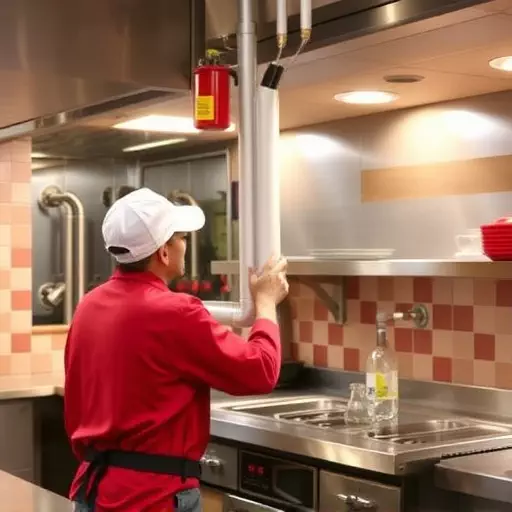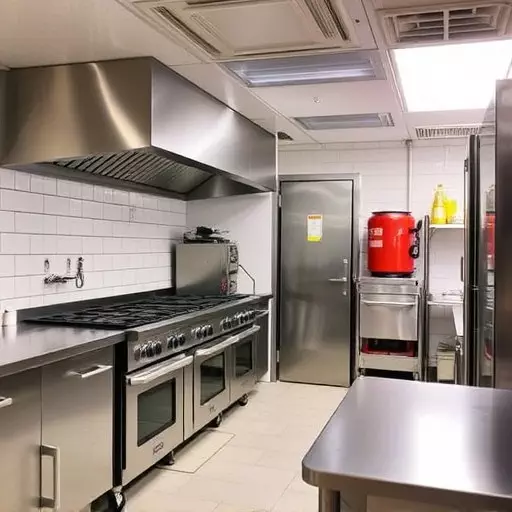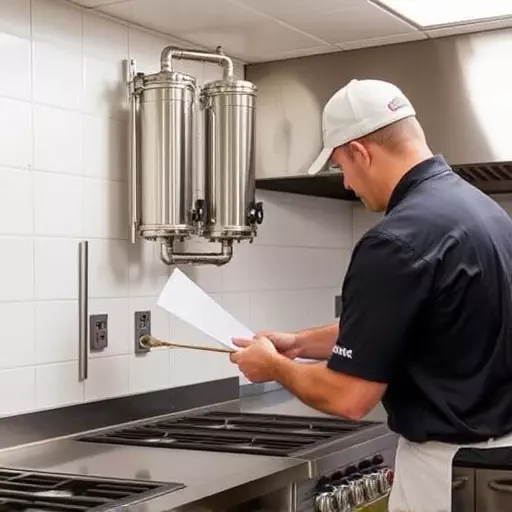Regular Kitchen Suppression Inspections in Spring Lake are vital for commercial kitchen fire safety, ensuring grease capture systems meet local codes. These inspections every 3-5 years verify duct condition, removal of grease buildup, and proper operation of fire detection devices & suppression nozzles, preventing costly repairs & maintaining business continuity. Compliance checks train staff to respond effectively during emergencies, protecting assets, employees, and customers.
In Spring Lake, ensuring fire safety within commercial kitchens is paramount. A crucial component of this is the kitchen suppression inspection, specifically targeting grease duct systems. This comprehensive guide delves into the significance of understanding kitchen suppression systems and their role in mitigating culinary fires. We explore the detailed process of grease duct suppression inspections, offering insights on what to expect and the recommended frequency. Additionally, we emphasize the importance of fire suppression compliance checks, maintenance routines, and the associated benefits for local businesses.
- Understanding Kitchen Suppression Systems: Their Role and Importance in Fire Safety
- The Process of Grease Duct Suppression Inspection: What to Expect and How Often It's Necessary
- Ensuring Fire Suppression Compliance: Checks, Maintenance, and Benefits for Spring Lake Businesses
Understanding Kitchen Suppression Systems: Their Role and Importance in Fire Safety
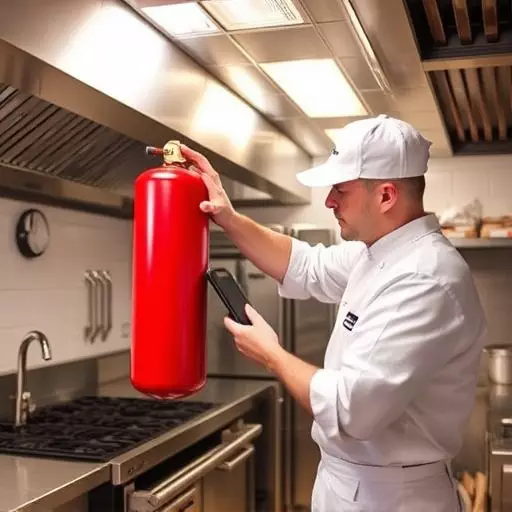
Grease duct suppression systems play a vital role in fire safety within commercial kitchens. These specialized systems are designed to quickly detect and suppress fires that may ignite from cooking oils and fats, which are inherent risks in kitchen environments. By understanding their functionality, we can appreciate why regular inspections, like those offered during a Kitchen Suppression Inspection Spring Lake, are essential for maintaining compliance with fire suppression regulations.
During these inspections, professionals assess the system’s overall condition, ensuring it meets the required standards set by local fire safety codes. This includes verifying proper grease buildup removal, testing fire detection devices, and examining the suppression agents’ quality and distribution. Regular checks help identify potential issues early on, allowing for timely repairs or replacements, ultimately enhancing the kitchen’s fire safety measures and preventing devastating fires that could disrupt business operations.
The Process of Grease Duct Suppression Inspection: What to Expect and How Often It's Necessary
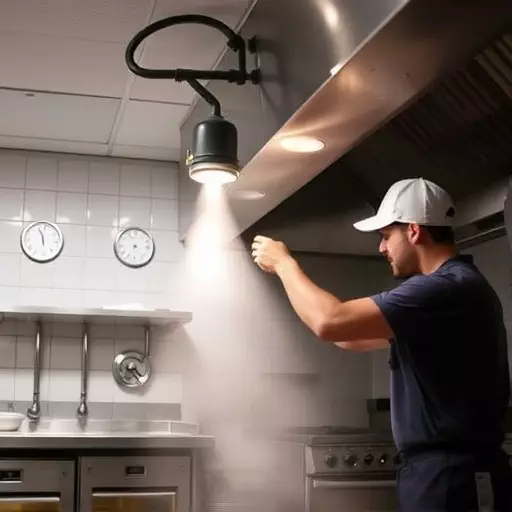
The process of a grease duct suppression inspection involves a thorough evaluation of your kitchen’s fire suppression system, specifically focusing on the ducts that are crucial for containing fires in culinary environments. During this inspection, a qualified professional will assess the condition and functionality of the grease capture systems, ensuring they meet the necessary fire code requirements. This includes checking for any leaks, blockages, or damage to the ducts, as well as verifying the proper operation of the suppression nozzles and alarms.
In Spring Lake, kitchen suppression system inspections are typically recommended every 3-5 years to maintain fire safety compliance. Regular checks ensure that your system remains effective in containing grease fires, which are among the most common in commercial kitchens. Staying up-to-date with these inspections not only protects against potential hazards but also helps avoid costly repairs and ensures business continuity by meeting local fire suppression compliance checks.
Ensuring Fire Suppression Compliance: Checks, Maintenance, and Benefits for Spring Lake Businesses
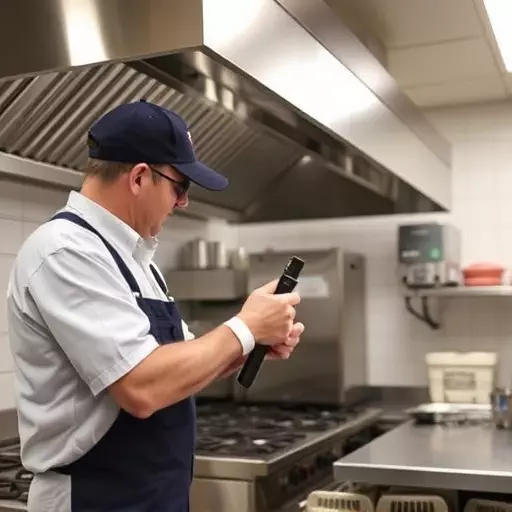
Ensuring fire suppression compliance is non-negotiable for any business in Spring Lake, especially those with kitchens or high-risk areas. Regular kitchen suppression inspection plays a vital role in maintaining safety standards and preventing potential disasters. These inspections involve thorough checks of the kitchen suppression system, identifying any issues or deficiencies that may compromise its effectiveness during an emergency.
By conducting routine compliance checks, businesses can benefit from improved fire safety measures. This includes early detection of faulty equipment, proper maintenance of suppression systems, and ensuring all personnel are trained to respond effectively in case of a fire. Such proactive steps not only protect the business and its assets but also safeguard the well-being of employees and customers, making it an essential aspect of responsible business ownership in Spring Lake.
